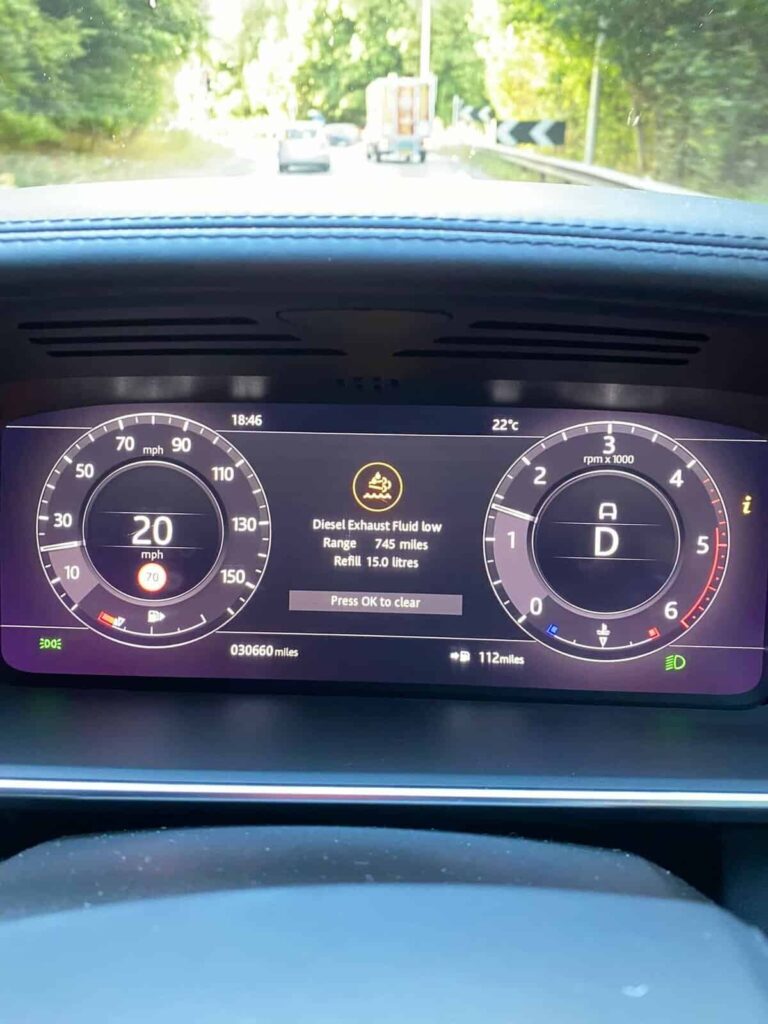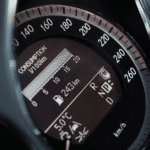AdBlue is relatively new to modern-day diesel vehicles, and people’s general knowledge surrounding it is still fresh. One thing that I can tell you is apparent is the unknown fact that not all diesel vehicles have an AdBlue system.
If this is your first vehicle that requires AdBlue or Diesel Exhaust Fluid (DEF), the best thing to do is read the owner’s manual first. The owner’s manual will give you most of the answers surrounding DEF. But doing this it will lead you onto a few unanswered questions: Does AdBlue go off? Does expired AdBlue cause damage, and how do you dispose of it?
This short guide will answer all those questions to keep you motoring along and worry-free.
Does Adblue Go Off?
AdBlue lasts for approximately 12 months. The urea and deionized water in AdBlue starts to deteriorate after a year. Once deteriorated, AdBlue will cause more damage than good when used in a vehicle. The whole point of AdBlue is to reduce the vehicle’s emissions. So, it needs to be at its strongest to do just that.
The life span of AdBlue can be slightly extended with care up to around 18 months (keep reading for more on this).
What Happens if You Use Bad or Out of Date Adblue?
Expired or bad AdBlue can cause lasting damage to the selective catalytic reduction system (SCR), so please do not use it. I’m sure you can guess that the selective catalytic reduction system(special catalytic convertor) is not cheap to replace.
The SCR is a fine-tuned complex system that injects DEF into the exhaust gases once all the necessary requirements are met. Any slight imbalance in the system, i.e., weak DEF, will cause complications in this perfectly harmonized environment.
How Do You Know if the Adblue Has Expired?
All AdBlue containers have a sell-by date printed, usually on the bottom or side of the bottle. Past this date, AdBlue should not be sold by vendors or used by customers.
One thing to note is it should not be bought at a discount on the expiration date and used like you might when buying food. If you are a high mileage driver, then AdBlue, which is just out of date, may still be valid if stored correctly. However, the only way of knowing how it was stored is if you kept it. So, best to avoid it.
How Can You Tell if Adblue Has Gone Bad?
AdBlue has some visual signs alongside the expiration date, indicating it is no longer usable. AdBlue is quite a simple product in that if it doesn’t look right, it probably isn’t. The few indicators to look out for are:
- the color has changed
- change in smell
- formation of crystals and particles
If any of these become apparent, then disposing of the solution using a correct, safe method becomes its only use.
How Long Does Adblue Last?
AdBlue typically lasts around 12 months from new when stored in a bottle, provided it is stored correctly.
Once in a vehicle, provided it remains stationary for 12 months, the AdBlue in the tank should still be okay. The AdBlue tank is a sealed unit, so as long as the cap is in place, it should not degrade. However, if the AdBlue has been sitting for a long time, it may begin the degradation process. If you are concerned about this, most garages should be able to drain and dispose of the AdBlue safely.
It’s important to note that every vehicle’s AdBlue system is different. In some cars, the AdBlue may last for 12 months before reaching the end of its life, while in others, it may not even have started to degrade. Therefore, 12 months is a conservative estimate.
When I talk about AdBlue, I’m only speaking about age for degradation purposes; when driving the vehicle, the AdBlue will last a certain number of miles before needing a refill; this is entirely different. The specific number of miles between refills depends on the size of your car’s DEF tank.

HowLongdoes adblue last once open?
Once opened, AdBlue has a short lifespan and should be used immediately. AdBlue deteriorates rapidly, which causes the strength of the DEF fluid to decrease, making it useless. A new sealed AdBlue bottle usually expires in around 12 months, so it is safe to assume that an opened bottle will expire much sooner.
How to Correctly Store Adblue
Unless you are a high mileage driver, it is pointless to stock up on DEF; DEF is readily available from all gas stations. If you fear running out of AdBlue, you could keep a spare bottle, but it is unnecessary to keep more than one. However, if you choose to store it, here are some tips to help prolong the life of AdBlue in storage:
- store in a cool, dry place
- keep away from sunlight
- do not open
- don’t let the container freeze
It is possible to extend the life of the AdBlue to around 18 months with a bit of care. DEF should be stored between 32 – 86 Degrees Fahrenheit (0 – 30 Degrees Celsius); AdBlue will freeze at 12 degrees Fahrenheit (-11 degrees Celsius), so it is important not to let the container freeze. On the other hand, ultraviolet rays from the sun harm and damage the solution, so don’t put it out in the sun to thaw if it freezes, thinking it will be okay.
How to Dispose of Expired Adblue
AdBlue requires proper disposal and cannot be poured down the drain. The chemicals inside AdBlue are corrosive. They are also an irritant, meaning AdBlue harms wildlife and the environment.
The only place you can take AdBlue and the container is to a recycling or waste disposal facility. Most of them can correctly dispose of the AdBlue container and the solution itself.
Bottom Line
To summarise the question, does AdBlue go off? Yes, it has an expiration date that should be kept to. Once past this, AdBlue is fit for one thing: disposal.
It is a hazardous chemical that shouldn’t be thrown away without care. AdBlue fluid is cheaper than fuel and readily available, especially when you won’t be refilling it every week, so storing more than one bottle is unnecessary. Remember to keep an eye on the expiration date and the conditions in which you store it. Cutting corners will cause expensive repairs later on if used.









